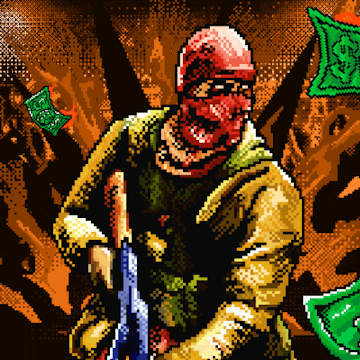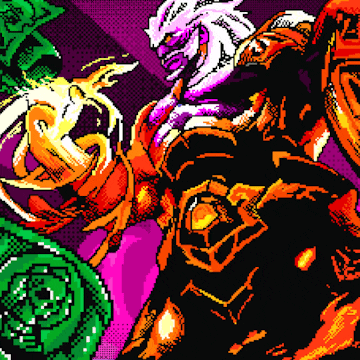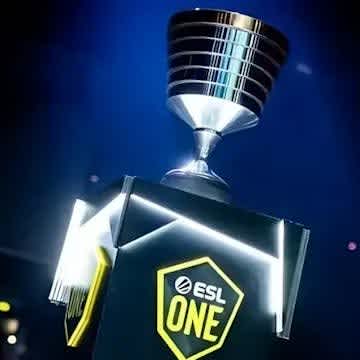Stage fright: why Gambit lost and Team Spirit won (and how Niko missed THAT shot)
One of the biggest talking points of the online era was whether the return of LANs would hurt the top teams that never really faced the cauldron of arenas before. Whether Gambit’s semi-final run should be considered a disappointment is up for debate, but there’s no denying that they completely fell apart against Na’Vi.
However, the finals of the latest top tier esports events in CS and Dota (and to some extent, LoL) all cast doubt on the notion that it’s all about experience and resilience: it’s those who walk the tightrope between naiveté and fearlessness that can elevate themselves beyond their competition. Sometimes, even that isn’t enough: just ask NiKo.
The fear in their eyes
Stage fright is a heck of a thing. There’s a reason why it has its own vocabulary: the butterflies, the nerves, the jitter, the flop sweat. The fancier ones among us with a thesaurus on the shelf might go with aphonia or glossophobia. In esports, we often refer to it as choking. There may or may not be a LUL or two involved as well.
This was perhaps the biggest question of the PGL Major: how much of the online era should be bracketed and asterisked in retrospect? I initially argued that it’s the best we’ve got, and it should therefore be taken seriously, but I’m not so sure now. With the lower motivation among some of the elite players and the coaching scandal roiling the scene, those that have emerged in this turbulent time would finally have to face the music and the crowd.
Though you can argue whether the difference is indeed as big as the commentariat suggested, there is definitely something to a stage environment. Even from my own experience as an occasional lecturer, I can tell you that there is something to the moment when you get on a stage, even in a situation lacking the sort of adversarial setup that is key to esports. It’s like passing through a forcefield. Your system is assaulted by so many unknown elements. The lights, the angles, the people staring back.
Even if it isn’t negative (and I certainly enjoy these kinds of moments), you still need to adjust. Craning your neck up towards the people sitting in the back, holding that stiff stick of a microphone in your hand as you talk: it’s different from a “normal” situation, and it takes getting used to.
For most of us, that is. That is where the rubber meets the road: sure, you look like an idiot if you hype yourself up and tell everyone how you feel no pressure and end up crumbling Gambit-style, but there are indeed those who transcend this whole environment. Just like with everything else, there’s innate talent at play here. Some are so good at handling the pressure that they can indeed ignore it and make it all work at the first time of asking. Just ask the recent winners of The International.
Those who win just do not care
This is where the Dota talent pool and the CS analysts seem to greatly differ in opinion. The Counter-Strike peeps seem to suggest that the arena is something to be conquered, another layer of experience that you accrue step by step and there’s no way you can conquer it at the first time of asking. The recent TI runs, meanwhile, were all about shocking underdog runs made by teams that played entirely without fear, not shackled by the stakes the same way some of their more esteemed and experienced competitors were.
It’s not just a careless, happy-go-lucky attitude, either: even a relatively smaller side like Team Spirit had their set of sessions with a sports psychologist. However, the idea mentioned in relation to OG and them – namely that they ignored the pressures of the stage while others couldn’t – seems to run afoul of what the Counter-Strike analysts would suggest. Is it really a thing, then?
When the margins of skill are so small (and they indeed are at the top levels of esports), auxiliary factors come into play at a much higher level. Indeed, we’ve seen even in CS that Cinderella runs are possible on the biggest stage of them all, and the newfound experience with the crowd doesn’t necessarily have to be a negative one: just ask a different iteration of Gambit from a different PGL Major back in 2017.
Storylines and struggles: what’s an analyst supposed to do?
There was quite the kerfuffle on Reddit over the negativity of the analyst desk after the match but realistically, what else is there to talk about in this scenario? A disappointingly one-sided affair of a semi-final where the winners were good but didn’t go above and beyond, meaning the attention had to focus on Gambit and the reasons behind their comprehensive defeat.
It’s rare to see teams fall apart this much at the business end of a tournament, but if you consider recent high-profile sporting examples of the same kind (8-2 be a Barcelona fan, right?), the conversation inevitably pivots towards dissecting their failings.
Especially because each pre-match segment is all about setting up an exciting clash, listing pros and cons of each side’s chances rather than painting things as one-sided affairs: that’s not their job. No wonder they’ll latch on real or perceived failings when everything goes off the rails like this.
(This also meant that our favorite boomer analysts had to focus on a different storyline for the grand final, but the whole s1mple versus NiKo angle and their respective dates with destiny made their job really rather easy for this one. We still had the choking angle because of that play but that was only after the fact.)
Persistence may trump talent in the long run, but it’s the talented people you want in the line of fire at the first time of asking, be it about shooting in the servers or surviving the roar of the crowd outside of it. Gambit, strong as they may have been in the CS department, just didn’t have the innate talent like an OG or a Team Spirit (or an AVANGAR, come to think of Berlin) when it comes to handling the pressure.
No doubt they will learn and improve along the way. It’s tough for most of us to get used to this. Just please don’t suggest that there’s nobody who can dance onto the arena at the first time of asking and ignore it all with a fearless set of performances. We’ve seen it before, and we will see it again.
Photo credit: HLTV





